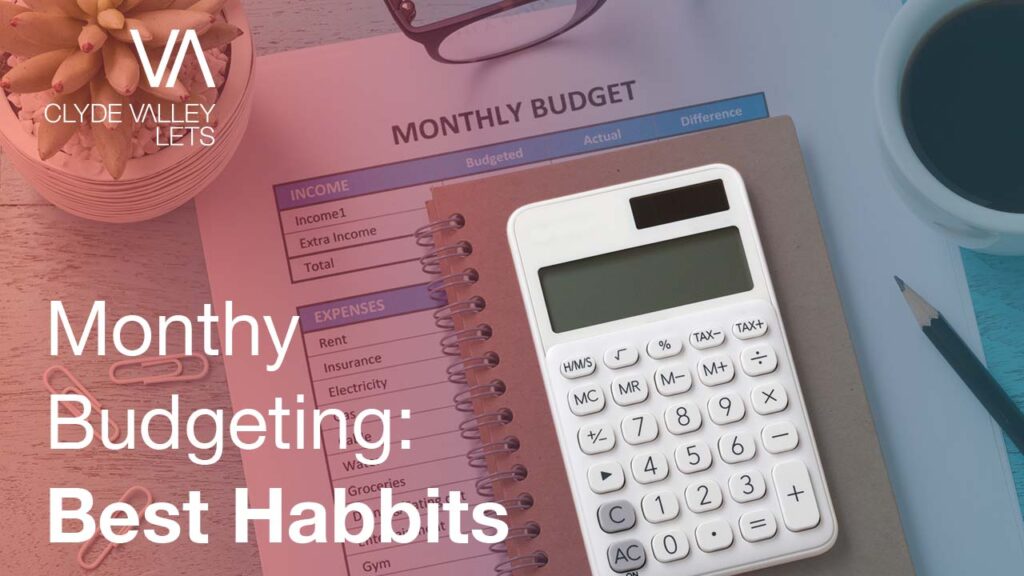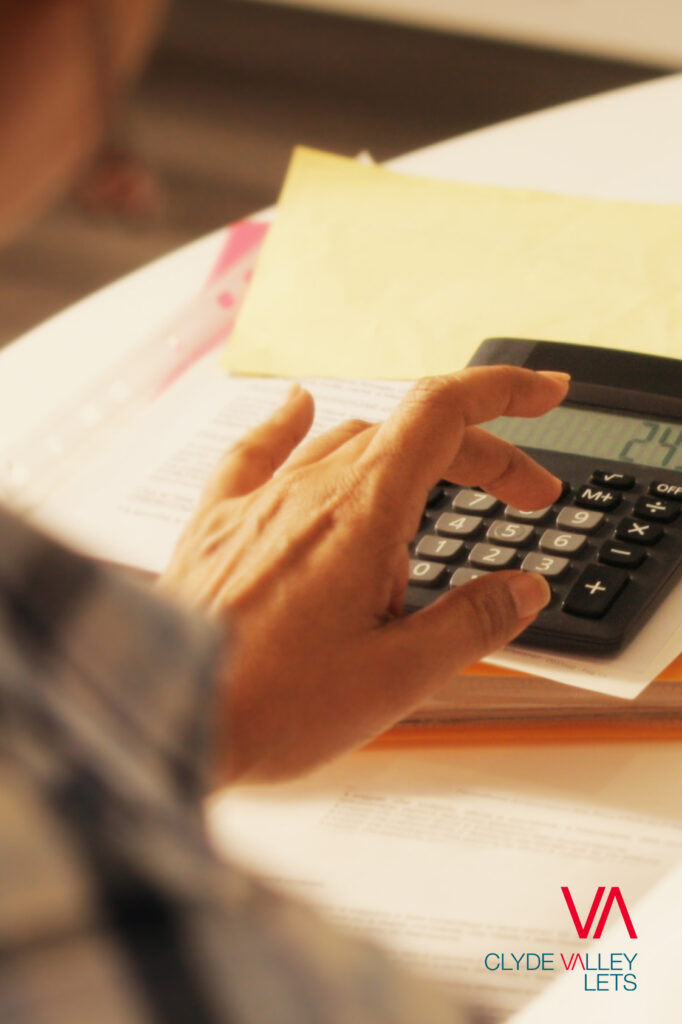Before you move into a rented home, it’s important that you calculate your monthly budget to work out whether you can afford it or not. Paying the rent on time – as well as covering other household bills is essential for maintaining a good relationship with your landlord.
Plus, if you’re free from financial pressures, you’ll enjoy your time in your rental home much more.
Here’s how you can budget to ensure that you can afford to move into a rental property and how you can always make sure you have enough money to pay the rent during your tenancy.

Work Out Your Up-Front Costs
If you’re looking for your first rental property, then you’ll need to save for up-front costs before you move in. This is usually your first month’s rent and a deposit.
There may be other fees payable to the landlord and you should ask about these before signing any tenancy agreement.
If you’re considering an unfurnished property, remember you could have a large outlay on furniture and other essentials such as plates, cutlery, bedding, a television and a number of other items. Discuss with the landlord or agent exactly what the property comes with, and then you can draw up a list of everything you’ll need and how much it might cost.

What Will Your Monthly Out-Goings Be?
In order to calculate whether you can afford a property, you need to work out your outgoings. To do this, you’ll need to make a list of all your expenses, including how much it will cost you to rent the property.
These generally include, but aren’t necessarily limited to:
- Rent
- Fuel bills (gas and electricity)
- TV Services
- Telephone costs, line rental charges and internet
- Council tax (unless you’re exempt)
- Contents Insurance
These are all essential costs that you’ll have to pay every month while you’re renting the property. In order to maintain a good relationship with your landlord, the local council and energy suppliers, it’s vital that you pay these bills on time.
Always Pay Your Rent On Time!
If you don’t pay your rent on time, you’ll not only damage your relationship with your landlord, but you may also harm your credit rating. Not paying council tax can also result in a court summons, and not paying your energy bills can result in vital services being cut off.
Your tenancy agreement should detail if you or your landlord are responsible for paying for the gas or electricity. You don’t necessarily have to stick with your landlord’s choice of energy supplier, as a tenant you can shop around to find the best deals available.
If you’re currently in a property and you’re worried about being able to meet any of your bills, it’s important to contact your landlord, the local council or your suppliers immediately. This can be a difficult conversation but they may be sympathetic to your situation, and alternative payment plans may be arranged.

Regular Bills You Should Budget For
In addition to the above, there will also be other items you pay for monthly or buy regularly, such as:
- TV licence (if you watch television or live television on a smartphone or laptop)
- Food and household items
- Credit card or loan repayments
- Transport costs (petrol and insurance for a car or train and bus tickets)
- Mobile phone costs
- Gym membership
- Dentist and optician costs
- Clothes
- Entertainment costs
- Gifts
By writing all of these costs down and noting how much you spend on each, you’ll soon see where your money goes. You may be surprised by some of the costs such as food and clothing, and it may highlight areas where you can cut down. By limiting the amount of money you spend on these outgoings, you’ll be able to make sure you can afford the essentials such as rent and council tax.
Using a budget calculator tool, like the one from Money Saving Expert, can be a great way to see, at a glance, how much money you’ll expect to spend each month.
Once you’ve calculated what you’re spending, you’ll be able to work out how much you should have left based on your income. Your income is all the money you have coming in, including:
- Your wages
- Your benefits (if applicable)
- Loans and contributions from family members
- Any money you make from other activities or second jobs
Once you’ve calculated this, you simply need to subtract your outgoings from your income.
If you end up with a minus number or nothing, you can’t afford the property you’re currently looking at and will have to cut down on your outgoings or find a cheaper property.
If you still have money left over, then there’s a good chance you can afford the property but you should always ensure there’s a good amount left over, in case your financial situation changes during the duration of your tenancy.
Help Is Available if You Need It
If you’re struggling with the costs of renting, then you may be eligible for help towards the rent and other costs from Housing Benefit, Universal Credit or other benefits. Your local authority can give you more information on this or speak to your agent who may be able to assist.
Finally, if you’re struggling to work out the maths involved, or just need a structured calculator to work out your finances for you, then it’s well worth using a budget planner, as mentioned above.
